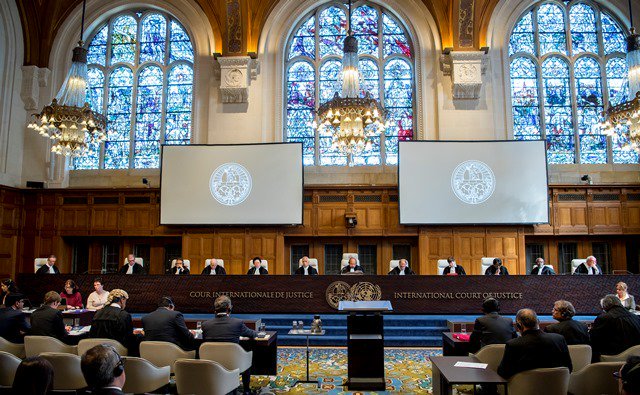
Jadhav, an Indian spy arrested from Balochistan last year, was awarded capital punishment by a military court in Pakistan on April 10 for ‘fomenting terrorism in Balochistan and Karachi’. However, his execution was stayed on May 18 by the ICJ on India’s request.
PBC executive member Raheel Kamran Sheikh has written to all 23 members of the council, requesting them to convene a meeting of the council and pass an appropriate resolution regarding the process of nomination of an ad hoc judge at the ICJ.
Pakistan urges ICJ to adopt expedited timeline for hearing
Sources told The Express Tribune that the government is considering the names of senior jurist Makhdoom Ali Khan, former chief justices Tassaduq Hussain Jilani and Nasirul Mulk, and former Jordan prime minister Awn Al-Khasawneh for appointment as ad hoc judge. In Pakistan’s history, only former foreign minister Barrister Zafarrullah was appointed as ICJ judge in 1954.
Legal experts are urging the government to nominate an ad hoc judge as early possible.
Sheikh also believes that nominating a judge at the ICJ is one of the most important decisions for any state; and for a country like Pakistan, such a decision becomes even more significant for various reasons including concerns for the national security, which appears to be at the heart of Jadhav’s case.
Pakistan to appoint ad hoc judge at ICJ
“As a citizen of this country, I feel that regardless of who is nominated by Pakistan for the appointment as ad hoc judge of the ICJ, the process for such nomination must inspire confidence of the nation and the same cannot be left entirely to the absolute discretion of the government.
“After a long struggle for independence of the judiciary in Pakistan, the parliament has curtailed absolute discretion of the government even to appoint judges of the Supreme Court and High Courts… How can then the process of nomination for appointment as a judge of the ICJ be left to the absolute discretion of the government?” he asks.
In such matters of national interest, the PBC member says, all political parties and all relevant institutions of the state must be on the same page. “The decision must look like a sovereign act and not just a decision of any political government,” he adds.

















COMMENTS
Comments are moderated and generally will be posted if they are on-topic and not abusive.
For more information, please see our Comments FAQ